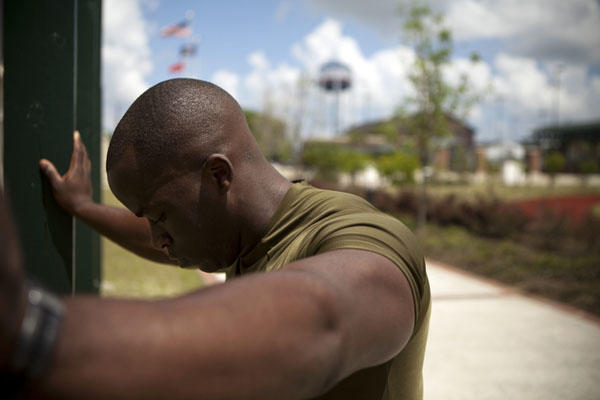Stress can minifest itself in many ways when you are a student, soldier, and a parent. But you must learn to recognize stress.
Stress symptoms include mental, social, and physical manifestations. These include exhaustion, loss of/increased appetite, headaches, depression, sleeplessness, and oversleeping. Increased use of alcohol or drugs, and other compulsive behavior are often signs. Feelings of alarm, frustration, or apathy may also accompany stress.
If you feel that stress is affecting your life, or your studies, your first option is to seek help through an educational counseling center or a veteran’s administration facility.
Stress Management is the ability to maintain control when situations, people, and events make excessive demands. What you can do to manage your stress yourself? There are numerous strategies you can try that might reduce the effects of stress, and minimize its impact on daily activities. These include the following:
- Take control: See if there is something you can change or control in the situation.
- Learn how to best relax yourself: Meditation and breathing exercises have been proven to be very effective in controlling stress. Practice clearing your mind of disturbing thoughts.
- Remove yourself from the stressful situation: Give yourself a break if only for a few moments a day.
- Set realistic goals for yourself: Reduce the number of events going on in your life and you may reduce the circuit overload.
- Selectively change the way you react: Focus on one troublesome thing and manage your reactions to it/him/her.
- Change the way you see things: Learn to recognize stress for what it is. Increase your body's feedback and make stress self-regulating.
- Avoid extreme reactions: Why hate when a little dislike will do? Why generate anxiety when you can be nervous? Why rage when anger will do the job? Why be depressed when you can just be sad?
- Do something for others: Helping others can help get your mind off yourself.
- Get enough sleep: Lack of rest just aggravates stress.
- Work off stress: Whether it's through workouts, jogging, tennis, or gardening, physical activity can relieve stress. As you have experienced, the military places great emphasis on physical fitness and exercise training. Studies show that physical activity enhances psychological well-being.
- Develop a thick skin: The bottom line of stress management is "I upset myself."
- Try to "use" stress: If you can't fight what's bothering you and you can't flee from it, flow with it and try to use it in a productive way.
- Be positive: Give yourself messages as to how well you can cope rather than how horrible everything is going to be. "Stress can actually help memory, provided it is short-term and not too severe. Additionally, stress causes more glucose to be delivered to the brain, which makes more energy available to neurons, according to a report titiled "All Stressed Up." This, in turn, enhances memory formation and retrieval. On the other hand, if stress is prolonged, it can impede the glucose delivery and disrupt memory.
- Don't sweat the small stuff: Try to prioritize a few truly important things and let the rest slide.
- Don't overwhelm yourself: Avoid fretting about your entire workload. Handle each task as it comes, or selectively deal with matters in some priority.
- Don’t self-medicate or escape: Alcohol and drugs can mask stress. They don't help deal with the problems.
- Most importantly: If stress is putting you in an unmanageable state or interfering with your education, social and/or work life, seek professional help.





